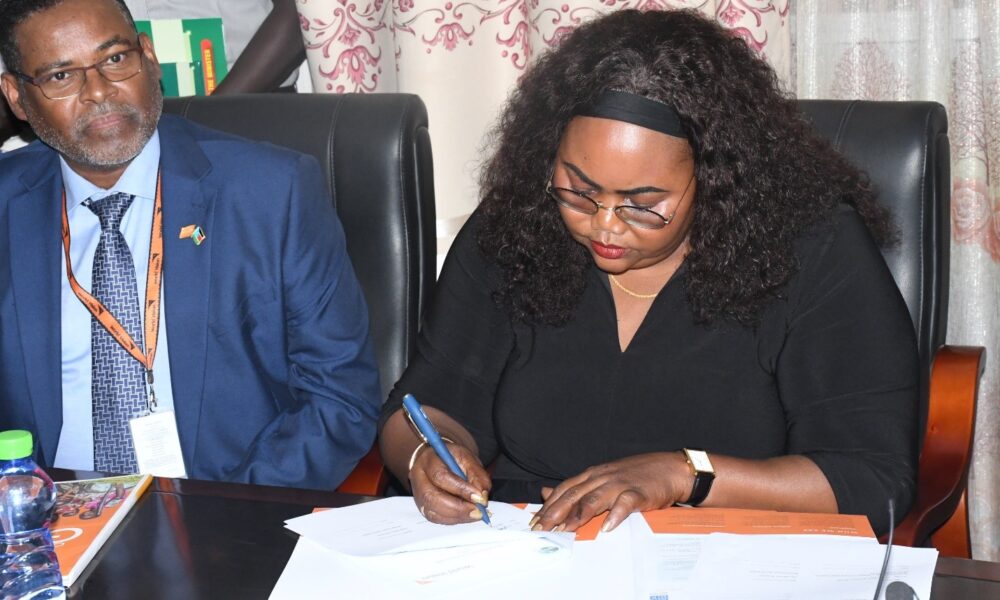By Jurugo Emmanuel Ogasto
South Sudan, United Nations Development Programme (UNDP), and World Vision International signed a Memorandum of Understanding (MoU) on the climate resilience project.
National Minister of Environment and Forestry, Josephin Napwon, on Thursday, signed the document on behalf of government of South Sudan.
The MoU covers a project called “Watershed Approaches for Climate Resilience in Agro-pastoral Landscapes (WACRESS).
WACRESS, aimed at building the resilience of vulnerable communities to climate change impacts while restoring ecosystems, holds immense potential for the region.
With funding support from the Global Environment Facility worth USD 33,392,335, it will be implemented in Aweil Center and Aweil East in Northern Bahr el Ghazal State from March 2024 to December 2028.
The project aims to benefit over 75,000 people and restore over 15,000 hectares of land.
Additionally, the project targets to bring together the expertise of the national Ministry of Environment and Forestry, World Vision, UNDP, and local communities to re-establish and strengthen market linkages and agricultural value chains.
It will equip extension agencies to support communities in adopting gender-responsive, climate-smart agricultural practices and diversifying livelihoods using hands-on, farmer-field-based approaches.
Climate change is currently the number one threat affecting the world, and South Sudan is among the countries in the region that is most affected.
Josephine Napwon, Minister of Environment and Forestry, said climate change in South Sudan is one of the serious issues affecting the population.
“The country is currently experiencing severe heat waves, droughts, and unpredictable rain patterns,” she stated.
“To address these impacts, the Ministry of Environment and Forestry has developed climate change strategies and projects to mitigate and adapt to these impacts.”
Napwon noted that the MOU they signed on Thursday is one of the projects that will be implemented in Aweil Center and Aweil East in Northern Bahr El Ghazal State.
“The signing of this MOU marks the official partnership between the Ministry of Environment and Forestry and World Vision South Sudan that will complement our partnership with UNDP, working together to build the resilience of our local communities to adapt to climate change,” she emphasized.
Dominic Sam, the UNDP Resident Representative, lamented that the project spearheads responsive climate adaptation efforts in the agricultural sector by integrating climate change strategies into national policies and bolstering local extension services.
According to him, the focus is to extend to resilient agriculture and food value chains, where they are implementing climate-smart practices to mitigate crop failure risks and enhance food security and economic independence for 25,000 individuals.
He revealed that the project will actively engage in community-based natural resource management. The project is seeking to add value to 15,000 hectares of land through sustainable land and water management practices.
Dominic assured that UNDP remains steadfast in its commitment to environmental conservation, a testament to their dedication to sustainable development and resilience building.
“This project underscores the urgency of addressing climate change, which presents significant challenges to societies, ecosystems, and economies globally, impacting agriculture, water resources, health, infrastructure, and livelihoods,” he added.




